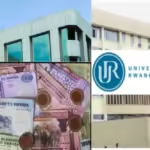After several test-takers complained that their results on the US Advanced Placement (AP) exam were revoked due to purported misconduct, China found itself engaged in a new cheating crisis involving international exams used for entrance to institutions abroad.
Candidates affected come from smaller, lower-tier cities as well as various sections of China, such as Beijing, Shanghai, Guangzhou, and Shenzhen. The country’s greatest concentration of AP curriculum schools is found in Beijing and Shanghai together.
Study abroad specialists point out that while the precise number of impacted students is unknown, the problem might potentially interfere with US colleges’ efforts to recruit Chinese students this year, leading to offer cancellations or delays in acceptance. Early to mid-July sees the online publishing of AP exam results.
As of July 11th, Wise News discovered that over 2,000 posts on the Little Red Book, a well-known social media platform, had been posted within the course of one week regarding the cancellation of AP ratings.
The test-takers responded with sorrow and shock. Since then, a few applicants have filed appeals to have their scores reviewed. Many did admit, though, that there was little possibility the ruling would be overturned. “I’m experiencing desperation,” a pupil expressed.
In addition, candidates worry that potential employers would learn about any misbehaviour, even though the US company that administers the SAT and AP examinations, College Board, says it doesn’t tell schools or universities when a student plagiarises.
High stakes
As per Xiao Jingdong, the founder of Yixiao, an independent evaluation agency for foreign education, the claims of plagiarism and AP test leaks feel more “rampant” this year even though they are reported practically annually.
“Some people take the risks because of the huge benefits of fraud,” Xiao said to local media, adding that the College Board’s sanctions for misbehaviour are “limited.”
According to Xiao, if instances of cheating happen regularly at a certain school, other students there or throughout the nation would be suspicious, which will harm the institution’s reputation and future applicants’ chances of getting into universities.
The International Baccalaureate (IB) testing board is currently looking investigating exam question leaks, which coincides with the AP score cancellations.
For the first time in its 55-year history, time zone trickery was discovered at the IB earlier this year. kids at International Schools, a significant source of talented kids hoping to study abroad, usually take the IB.
‘Comprehensive’ investigation of AP
The College Board notified those potential international students last week, before of the formal results announcement on July 8, of the scores that were revoked after the May AP exam.
The email from the College Board dated July 2 states, “The decision follows a comprehensive investigation where we determined that testing misconduct occurred.”
The College Board stated in its email that “clear and overwhelming evidence” of misbehaviour was discovered before the judgement was made.
Additionally, it described behaviours that may be considered cheating, like analysing responses that show evidence of copying or collusion or using a different testing software than Bluebook, which is the official testing programme, on the testing device.
Popular subjects including economics, calculus, psychology, statistics, biology, and chemistry were among the many subjects covered. Exams for 2024 were given in test centres and schools from May 13–17 and May 6–10.
The cancellations were attributed to massive exam leaks, according to social media rumours. Real AP exam questions were reportedly available for purchase online on Little Red Book and Zhihu, another social media site, according to reports from Chinese media in May. In certain severe situations, the testing site’s entryway openly sold the answers.
The first test day in China for the AP Chemistry course took place on May 6. A few applicants who had unlawfully received test questions beforehand claimed on social media that several multiple-choice questions and the first half of the free-response questions were “exactly the same.”
Later, these tips spread more widely, stoking concerns that the tests might have been leaked beforehand.
Exam oversight problems
Experts on study abroad speculate that oversight issues could be the cause of the leaks. In the past, the Ministry of Education in Beijing oversaw the AP programme through the National Education Examinations Authority, which had a fairly strict test administration procedure and few leaks were documented.
But as of September 2020, the College Board has teamed with the US test administration company Prometric to handle the entire registration and administration of the AP exam in China, taking over from the government.
Senior AP examiner Fu Ying claims that the agency assigns management duties to training centres and schools, creating many supervision gaps.
Fu stated to Chinese media in May that “mathematics, economics, and calculus in particular are at high risk of leaks, and they are the subjects that people are more willing to spend money on.”
Time zone cheating
The test questions and answers surfaced on the social media site Reddit on May 1, roughly 30 minutes after students in Asia finished the International Baccalaureate (IB) “Mathematics P1” exam. This caused a significant number of students in the European time zone who had not yet begun the exam to download them.
Test questions for additional courses were leaked following the exams on May 2.
The International Baccalaureate Organisation announced on its official website that it had learned about student content sharing of portions of the May exam online.
It stated that it was certain that cheating would only occur “at the fringes of what is otherwise a standard exam session,” refusing to consider the possibility that it might be widespread.
Early in July, more than 190,000 IB candidates who took the May exam globally received their results. The IB group will not, however, disclose the number of candidates that were fined for time zone manipulation. It has promised to reevaluate time zone configurations for upcoming tests.
“The IB is already implementing some changes to lessen the impact of any such behaviour by students, such as establishing official exam start times in each nation and switching to three exam zones globally. Naturally, we will reassess these following a study of the behaviours we have observed this year,” it said.









